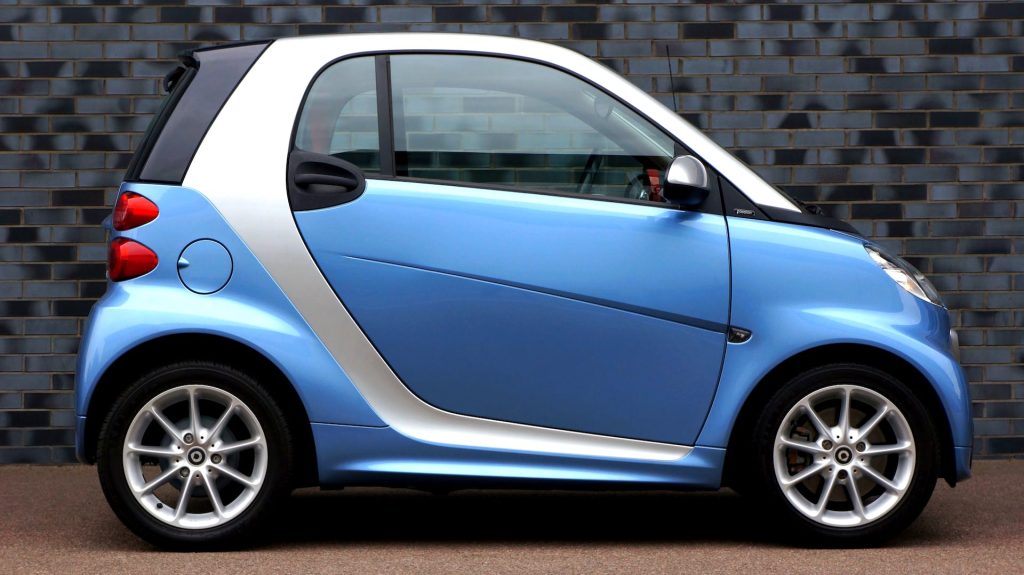
MBUSA 2019 Smart Fortwo Face Recall for Electric Drive Issues
In 2016, Mercedes-Benz USA (MBUSA) announced the fourth generation of its electric drive would be coming to its Smart Fortwo vehicles. The system promised to offer “emission-free driving” for those who owned Smart cars.
In 2020, the National Highway Traffic Safety Administration (NHTSA) released a Safety Recall Report on the Smart Fortwo. The report states that the Smart Fortwo may have issues with its electrical system. Other Smart Fortwo owners in California and other states have also reported problems with this system.
Issues in the MBUSA Smart Fortwo Electric Drive Recall
According to the NHTSA Safety Recall Report, certain 2019 model-year Smart Fortwo electric vehicles have problems with the electric drive or battery systems. For example, NHTSA notes, “the cell-internal welding of the main cell conductors…of the high-voltage battery might not meet current production specifications.”
The Safety Recall Report also describes some risks associated with batteries with deficient welding. When the welding isn’t sufficient, it may come loose, especially when the battery is heating up during use. Vibrations produced as the vehicle drives on ordinary roads may also cause the welding to come loose.
If the welding breaks loose, it may disrupt the electrical contact within a battery cell. Once one battery’s electrical contact is disrupted, the entire battery could fail at once. Without its battery, the vehicle will stall – no matter where it is or how fast it travels. Drivers could face potentially catastrophic accident conditions if the vehicle stalls in a dangerous situation, such as while driving at high speeds or in heavy traffic. Drivers will not be able to maneuver a stalled car quickly to avoid an oncoming risk, like another vehicle.
The NHTSA report also notes that in some cases, a broken weld could lead to an electric arc, in which a current of electricity “jumps” between two cells of the battery. If an arc occurs, one or more battery cells could ignite, causing a battery fire.
Battery fires in electric vehicles, while rare, pose known dangers. Because the batteries burn hotter and longer than a gasoline-powered fire, for instance, they pose a higher risk of death or serious injury to the vehicle’s occupants. Those in the surrounding area, like other drivers or pedestrians, could also be severely injured. Rescue teams that respond to the scene will likely have to work longer and at greater risk to put out a battery fire than a fire in a gasoline-powered vehicle.
Other Problems Reported by Vehicle Drivers
The battery issue listed in the NHTSA report is not the only electrical problem reported by Smart car drivers over the years. One online forum includes reports from several people about electrical problems in Smart Fortwo vehicles:
- The owners of a 2008 Smart Fortwo reported flashing and malfunctioning lights, brakes going out, and a vehicle fire.
- An owner of a 2010 Smart Fortwo reported the vehicle “seized” on the freeway. When the owner got the vehicle stopped, they discovered it was on fire.
- One report noted software problems with a 2016 Smart Fortwo, stating that the software for the power control module didn’t match the series-level software configuration, essentially confusing the vehicle’s onboard computer.
- Another 2016 Smart Fortwo was diagnosed with “battery management system failure” at just 13,700 miles.
Other issues included keys stuck in the ignition, the vehicle’s transmission becoming stuck in part, and electrical fuses that tend to short out, causing erratic behavior from the AC and other systems. These issues affected Smart Fortwo vehicles in every model year from 2008 to 2019.
How Does California Lemon Law Apply?
California lemon law allows vehicle owners to seek compensation from automakers when a vehicle under warranty has ongoing issues the dealership can’t seem to fix. Three types of compensation are typically available in a lemon law case:
- Refund or replacement. The automaker must either supply a refund of the purchase price or a substantially similar replacement vehicle. The lemon vehicle’s owner can choose which they prefer.
- Incidental and consequential damages. The automaker must compensate the vehicle owner for costs associated with having a lemon – like the cost of towing or a rental car.
- Attorneys fees. Automakers must also pay attorney’s fees for vehicle owners if the vehicle is a lemon. This rule allows vehicle owners to seek help from an experienced lawyer while paying little or nothing out of pocket.
California lemon law operates to protect vehicle owners whose vehicles have ongoing defects or issues, particularly those that put health or safety at risk. If you’ve faced ongoing issues with the electric drive in your Smart car, talk to an experienced California lemon law attorney today.
SHARE
Lemon Law Categories
Over 97% Success Rate
In Lemon Law Claims
Business Law Categories
I bought a 2014 Jeep Cherokee from the 3 months I had my dream car I started having problems. When I could not resolve my problems with the dealer or Chrysler I started making phone calls to see what Lemon Law Firm could take to make my case. I made about a dozen or more…